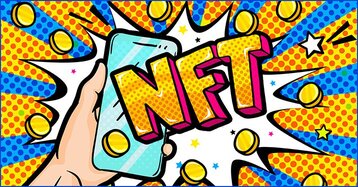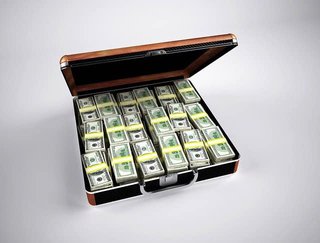What to expect in 2022: David Deal shares his music industry predictions
David Deal is a both a branding and marketing thought leader. Here this frequent Hypebot contributor shares his music industry predictions for 2022.
By David Deal, founder and CEO of David J. Deal Consulting
The Metaverse Means Mega Business for Music
The metaverse has already made its mark on the music industry. In 2022, the metaverse will become an economic force to be reckoned with.
The Metaverse Defined
The metaverse is an interconnected virtual world where people live, work, and play through digital twins such as avatars. The metaverse is already here in some form. Roblox and Fortnite have millions of daily active users who’ve been living the avatar life for some time. And many building blocks of the metaverse, ranging from augmented reality to crypto currencies, exist across the digital world outside the metaverse. (You don’t need an avatar to use crypto currency, for example.)
We often associate music and the metaverse with Ariana Grande performing on Fortnite or The Weeknd doing a virtual concert on TikTok – well, not them, per se, but their avatars. Yes, the Rift Tour Featuring Ariana Grande is part of the metaverse, and we’re going to see more concerts where avatars of musicians perform in immersive worlds (as holograms of dead people have been doing in the physical world for years). But those types of experiences are only a small part of the metaverse.
NFTs and Crypto Currencies Empower a “Musical Middle Class”

There’s something else going on that is equally fascinating in the music industry, which will have a profound impact in 2022: the adoption of NFTs, digital currencies and crypto currencies, which are building blocks of the metaverse. In the metaverse, people and businesses use digital currencies to buy things that include music, art, and real estate, and they can do that outside the metaverse, too. Those assets are given unique value though a technology known as a nonfungible token, or NFT. Crypto currencies (a form of digital currency protected by encryption) and NFTs are empowering musicians everywhere to create economic value at a time when they’re not getting much return from streaming platforms, and touring remains threatened by the lingering pandemic.
By now, anyone who follows the music industry has heard about Grimes auctioning off a set of NFTs (representing audiovisuals of spear-wielding space babies) for $6 million in 2021. When you look beyond the headlines of these one-off stories, you see artists building fan loyalty as well as commercial value. For example, critic’s darling Portugal The Man launched its own creator coin, a crypto currency that the band uses to offer coin holders perks such as watch parties and music lessons. Portugal The Man also recently collaborated with Deadmau5 to release 1 million copies of their new single “This is fine” as an NFT. They aspire for the single to be the first NFT to go platinum.
Portugal The Man’s creator coin is more than access to a fan club; it’s a way of investing in the band, which is a crucial detail that too often goes unnoticed in discussions about the metaverse. Remember when David Bowie issued Bowie Bonds in 1997? Creator coins are similar. I’m sure if David Bowie were alive today, he’d have been a first mover with creator coins.
NFTs and crypto currencies are empowering indie artists everywhere. There are too many to list here, but they include Ibn Inglor, Curren$y, Mick Jenkins, Thoughts Detecting Machines, and many others. For example, Daniel Allan built a fan following on the Discord server during the pandemic and used NFTs to crowdfund his forthcoming EP Overstimulated in exchange for 50 percent of the artist share of Overstimulated’s master royalties. Investors in the $OVERSTIM digital currency share in the profits, with top investors getting special access to perks such as private listening parties and headline shows. He also sells songs on an NFT music platform known as Catalog.
He told Time magazine that building a fan base on Discord is crucial to his success because Discord attracts digital currency enthusiasts:
Allan subscribes to the idea that having “100 true fans” is better than having many casual ones—so he spends 6 to 8 hours a day interacting with his fans on his Discord, where they offer encouragement, feedback and memes. Because many of them have bought a share of his masters from him, they are emotionally and financially invested in his success. For his next project, he wants to break down the wall between artist and fan even further. “I want to be like, ‘Here are 20 demos, let’s make an EP together,’” he says. “There are a lot of creative people in my Discord but they haven’t necessarily had the mechanisms to be able to exercise their creativity.”
NFTs and crypto currencies level the playing field a bit for indies such as Daniel Allan. As he told Time, “I don’t think this creates rich artists. What this does is create a musical middle class.”
Follow the Money

In 2022, we’ll see more businesses sprouting up around the NFT and crypto currency space alone – companies such as Corite, a blockchain-based equity crowdfunding platform connecting musicians and their fans; OneOf, an NFT platform built specifically for the music community and designed to break down economic barriers to entry; Rally, the platform where Portugal The Man minted its creator coin; and Catalog (Daniel Allan’s platform of choice), just to name a few. Meanwhile, big brands will find more ways to create experiences inside metaverse worlds such as Roblox. Those experiences will include music.
For example, Nike recently launched NIKEWORLD on Roblox and bought RTFKT, which creates collectibles that merge culture and gaming. These moves will help Nike build its presence as a music brand in the metaverse. Musicians hosting concerts in NIKEWORLD? It’s going to happen. Nike will use the metaverse (in particular NIKEWORLD) as a way to create brand activations with emerging music talent in the metaverse, just as Warner Music Group is doing with Twitch in the good old-fashioned digital world. But music labels will also mine the metaverse for commercial value. Consider Warner’s partnership with Genies, a company that creates digital avatars and wearables.
We are rapidly emerging from the “Wow, isn’t this cool? Musicians selling stuff with NFTs!” phase. Businesses are growing and coalescing around musicians. When touring comes back for real, promoters and festivals will offer interactive experiences and NFTs to complement live shows. Everyone follows the money.
Virtual Stars Rising
In 2022, the rise of the metaverse means that a growing number of musicians and celebrities flitting about the music industry won’t be real people. They’ll consist of digital characters created in computer graphics software by businesses such as Virtual Humans, then given a personality defined by a first-person view of the world.
For example, K/DA is a virtual K-pop girl group consisting of four themed versions of League of Legends characters: Ahri, Akali, Evelynn, and Kai’Sa. They’re the brainchild of Riot Games, and they’re perfect for gaming, the gateway drug to the metaverse. They have plenty of company. Kai is a virtual influencer developer who created Splash, a game within Roblox that allows users to create and perform their music to live audiences. Kizuna AI is a virtual YouTuber with millions of subscribers on her channels. LV4 is a virtual cyborg and hip-hop producer. BumBailey is a non-binary collective composed of several characters, each with their own body shapes, names, and personalities. Recently, BumBaily posted on TikTok a video using the song “Rumors,” by Cardi B and Lizzo. The post accumulated millions of views and caught Lizzo’s eye.
The popularity of virtual entertainers might seem odd and even off-putting – but not to anyone who hangs out in gaming worlds. That’s the whole point of the metaverse: create a different world. And that’s what music does. Where virtual musicians and immersive concerts leave musicians in the offline world is an open question, and I realize there’s a very real apprehension that the metaverse will engulf the physical world. I think we’ll ultimately see the two co-exist. When touring and festivals come back for real, I suspect we’ll see more of a merging between the two – such as NFTs and virtual experiences complementing the action onstage at Coachella. NFTs will be the new VIP tent at Coachella.
For now, we’re living in parallel worlds.
About David Deal
David Deal is founder and CEO of David J. Deal Consulting, a marketing consulting firm. He contributes regularly to publications such as Hypebot, Hacker Noon, The Startup, and Festival Peak.
Key links:
Music industry is changing every day and this dynamics actually make me think that I would like to find out more about music. Unfortunately, due to the huge workload, I am not able to pay enough attention to the things that I really love. I was recommended to check this site https://artscolumbia.org/free-essays/beloved-essay/ and get access to some essay samples and grab my portion of inspiration.